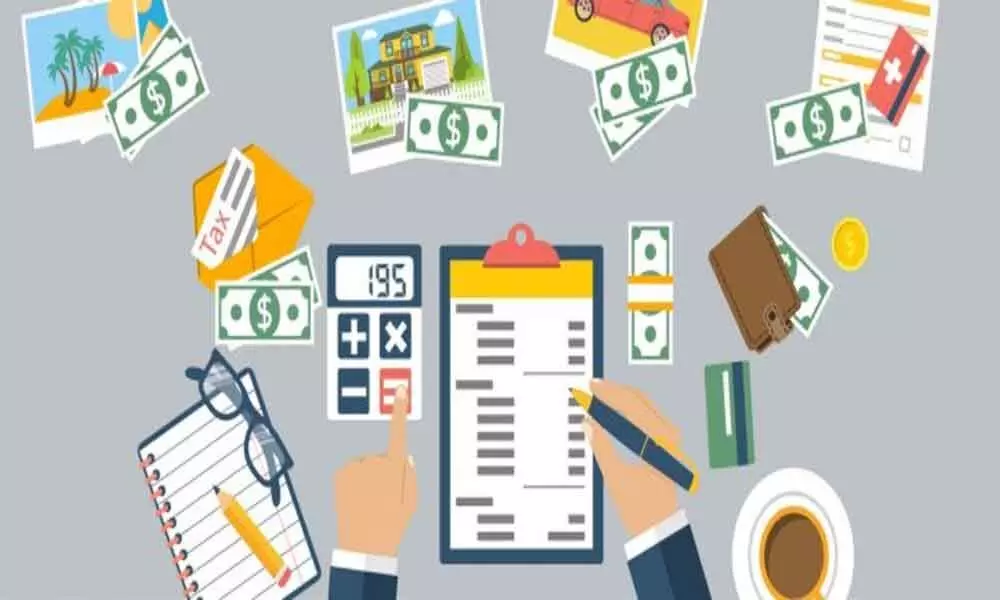Live
- Over 7,600 Syrians return from Turkiye in five days after Assad's downfall: minister
- Delhi BJP leaders stay overnight in 1,194 slum clusters
- Keerthy Suresh and Anthony Thattil Tie the Knot in a Christian Ceremony
- AAP, BJP making false promises to slum dwellers for votes: Delhi Congress
- 'Vere Level Office' Review: A Refreshing Take on Corporate Life with Humor and Heart
- Libya's oil company declares force majeure at key refinery following clashes
- Illegal Rohingyas: BJP seeks Assembly session to implement NRC in Delhi
- Philippines orders full evacuation amid possible volcanic re-eruption
- Government Prioritizes Welfare of the Poor, says Dola Sri Bala Veeranjaneyaswamy
- Two Russian oil tankers with 29 on board damaged due to bad weather
Just In
Mistakes to Avoid When Starting a Budgeting Plan


Most people are aware that the best way to manage their personal finances is by creating a budget. Budgets make it easy to stay organized and have a visual of where your money is going each month.
Most people are aware that the best way to manage their personal finances is by creating a budget. Budgets make it easy to stay organized and have a visual of where your money is going each month. Although you may have a budget in order, there are a few mistakes to avoid to ensure you can maintain healthy finances.
Failing to Create a Monthly Budget
Most people's expenses change every month, whether their children need new clothes for school or they need to tune-up their HVAC system. Creating a monthly budget is essential to ensure the document is updated and accurate. You'll need to use a spreadsheet or an app to make the necessary adjustments to your expenses and bills. It's also important to have extra wiggle room with your finances to account for utilities or bills that may fluctuate throughout the year.
The budget also needs to be adjusted when the household income increases or drops. If you get a raise, decide where the extra money will be spent to avoid wasting it. You may want to increase how much money you save each month or even start investing the extra wages.
Debt should be an additional expense that is included in your budget because it should be repaid consistently until you no longer have a balance. You may want to cut out other expenses in your budget to pay more money towards your debt.
Forgetting to Track Spending
Tracking your spending is one of the most important parts of managing your budget to ensure you're updated on where your money is spent. You'll need to update the budget each time you pay your bills, have extra money that comes in, or acquire debt.
There may be times where you exceed your budget and spend more than you anticipated, especially if there's an unexpected emergency that arises. Some unexpected emergencies –like hospital bills or lawyer's fees can add up to hundreds or even thousands of dollars. If you do not have enough money in your savings to handle the short-term unexpected emergency expense, you can consider applying for a payday loan. Pay day loans will allow you to repay your balance in installments to ensure that it works with your budget.
Not Saving for Big Expenses
From new furniture to cars, there are likely big expenses that you'll have to purchase from time to time. Planning ahead is crucial to avoiding debt or running out of funds. Part of starting a budgeting plan means that you'll need to save for big expenses. Determine how much the purchase will cost, including tax. Review your budget to get an idea of how much money you can afford to set aside each month before it's time to purchase the goods or services.
Create a few goals on what you want to save for to ensure that it can be paid in full. Your list may include setting aside money to buy an anniversary gift, home repairs, and remodeling projects.
Forgetting About Annual or Semi-Annual Expenses
There are many bills that you may only need to pay once or twice each year and can be easy to forget about because they're not consistent. Make a list of annual or semi-annual expenses that you'll need to pay to ensure you set aside enough money each month. These expenses can include property taxes, HOA fees, gifts, vacation, and seasonal utilities. Many people also have to plan several months in advance for the money they'll spend on Christmas gifts for their family members and friends. Knowing the purchases that you'll have to make each year will allow you to plan accordingly and avoid accumulating debt.
Thinking long-term is also necessary when starting a budgeting plan. You may want to save enough money to enroll your child in college in the coming years or to buy a larger house once you retire. Knowing your long-term goals can allow you to adjust your lifestyle to accommodate your needs in the future.
If you take the time to start a budgeting plan, then you're already on the right track to taking control of your finances and know where your money is going throughout the year. By understanding a few mistakes you'll need to avoid, it can allow you to enjoy a smooth process with managing your money and reduce your risk of getting into debt.

© 2024 Hyderabad Media House Limited/The Hans India. All rights reserved. Powered by hocalwire.com






